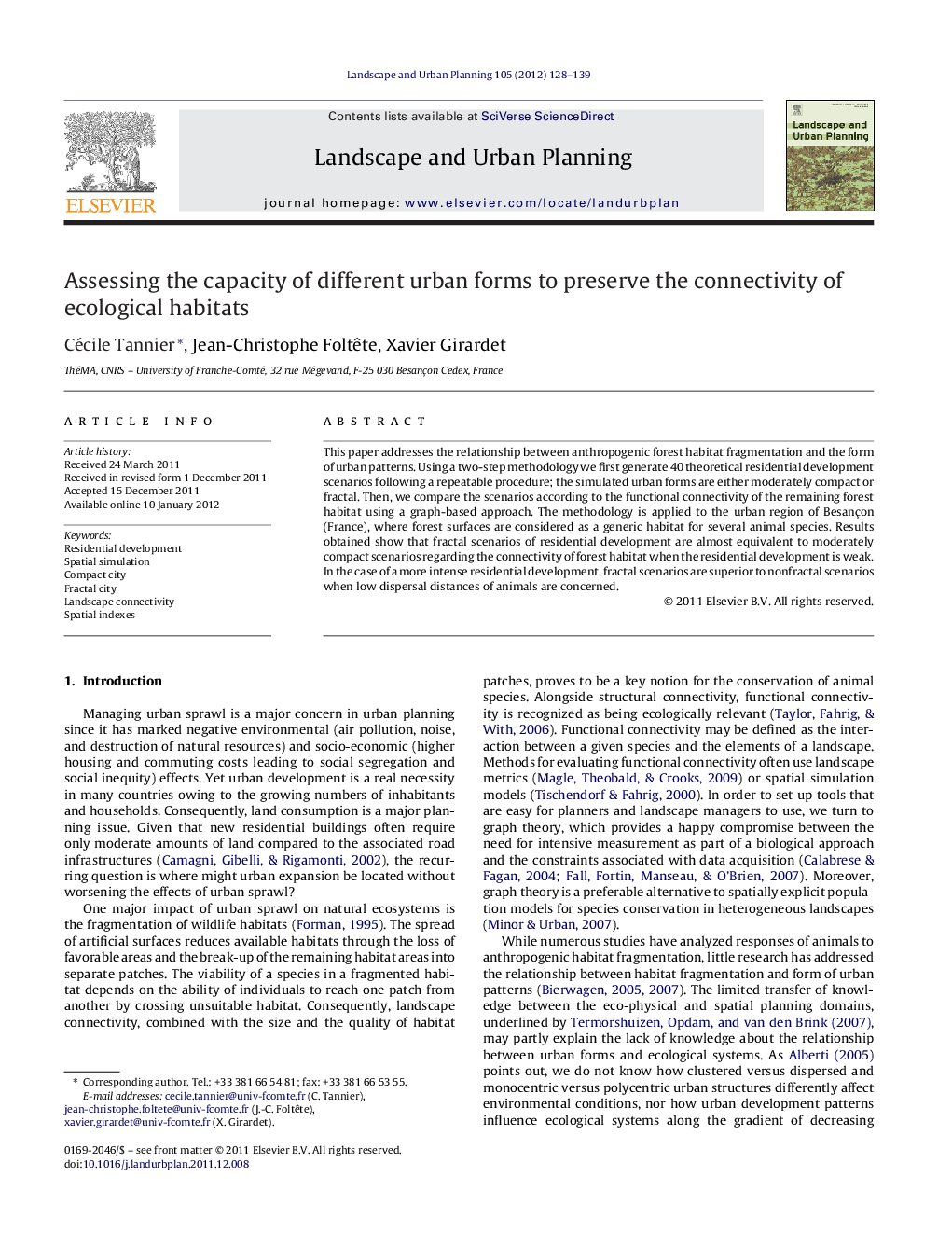| کد مقاله | کد نشریه | سال انتشار | مقاله انگلیسی | نسخه تمام متن |
|---|---|---|---|---|
| 1049588 | 1484650 | 2012 | 12 صفحه PDF | دانلود رایگان |

This paper addresses the relationship between anthropogenic forest habitat fragmentation and the form of urban patterns. Using a two-step methodology we first generate 40 theoretical residential development scenarios following a repeatable procedure; the simulated urban forms are either moderately compact or fractal. Then, we compare the scenarios according to the functional connectivity of the remaining forest habitat using a graph-based approach. The methodology is applied to the urban region of Besançon (France), where forest surfaces are considered as a generic habitat for several animal species. Results obtained show that fractal scenarios of residential development are almost equivalent to moderately compact scenarios regarding the connectivity of forest habitat when the residential development is weak. In the case of a more intense residential development, fractal scenarios are superior to nonfractal scenarios when low dispersal distances of animals are concerned.
Figure optionsDownload as PowerPoint slideHighlights
► Forty simulations of compact or fractal residential development are compared.
► Comparison addresses the functional connectivity of the remaining forest habitat.
► Either fractal or compact urban forms best preserve forest habitat connectivity.
► Interest of an urban form depends on the intensity of residential development.
► It also depends on the dispersal distances of animals considered.
Journal: Landscape and Urban Planning - Volume 105, Issues 1–2, 30 March 2012, Pages 128–139